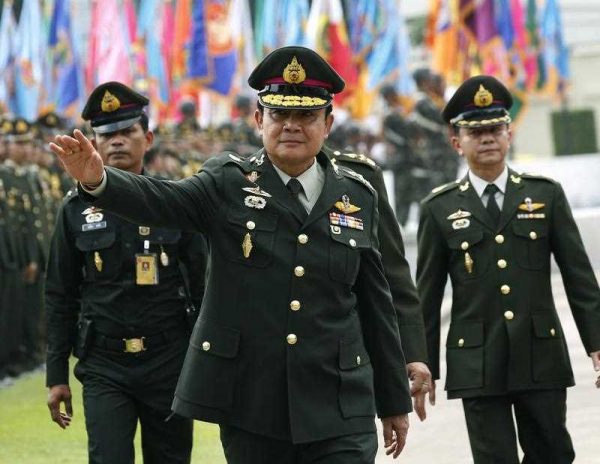Two decades after it was considered to be a consolidating democracy, Thailand is now led by outright military-authoritarian rule. In much of the region there will be considerable good news in 2016, but in Thailand good news seems hard to find.
There is little agreement in Thailand on who is to blame for its political derailment and prolonged social malaise. A better question is how to get back on track and how to move forward. But here lies Thailand’s knotty conundrum.
The military government of Prime Minister Prayuth Chan-ocha is stuck between a rock and a hard place of its own creation. It feels compelled to stay in power until it believes that Thailand can function as a workable democracy. But disagreements between groups supporting the coup are themselves prolonging the road to recovery and the interregnum may still be indefinite.
Since the military seized power in May 2014, the pro-coup coalition has been characterised by instability and political stagnation. The coup was staged on the pretext of cleaning up corruption and instituting reforms to remake the country into a disciplined democracy underpinned by traditional values and institutions. To do so, a charter-drafting process has been set up to rewrite rules and to reinstate checks-and-balance mechanisms. Yet as the junta-appointed government approaches two years in office, what once tied its support base together has begun to fray.
Among the first in the pro-coup camp to show dissatisfaction was the Democrat Party, the main opposition party that railed against the previous elected government both in parliament and in the streets. After performing much of the heavy lifting to oust the government of Yingluck Shinawatra from October 2013 until the coup, the street-based Democrat faction known as the People’s Democratic Reform Committee (PDRC) probably did not foresee a long-term military dictatorship. But the PDRC is holding its tongue for now.
The same cannot be said for other Democrat Party members who want to regain electoral power and who have become more vocal against military rule. Still, while the divided Democrats should not be written off, their leadership is mired in controversy behind the scenes and is bereft of policy ideas.
Civil society activists who supported the coup also seem to be having second thoughts. They most likely did not anticipate renewed abuse and repression under military rule, including human rights violations and a lack of government accountability. Many members of Thai civil society were conservative when facing the Shinawatra clan in government but are becoming more progressive now that the military government seems to have entrenched itself in government for the long haul. If circumstances shift and the military government is no longer in favour, civil society may pile on the pressure as they have done against military dictatorships in the past.
Bureaucratic support for the coup is wavering too. Some bureaucrats continue to rationalise why the military government is necessary to get rid of corruption and straighten out Thailand. But others are foot-dragging and hedging their bets in light of government uncertainty.
The game-changer for Thai politics in 2016 and beyond may be the position of big business. So far key business people have been supportive of the coup and the government. But sustained economic doldrums and mounting international pressure may prompt them to change direction should the opportunity arise.
Despite all this the army’s backing of the current government is still strong. This is remarkable considering the Thai army is controlled by a small band of brothers from one regimental unit.
More predictable is the reaction of the varied anti-coup coalition, which covers the Shinawatra governments’ Pheu Thai party and the ‘red shirts’ of the United Front for Democracy Against Dictatorship. Continued military repression and charges of malfeasance against Yingluck over her government’s rice-pledging policy — where Yingluck sought to increase the market price for rice in a bid to win the support of paddy farmers — will aggravate these groups. But loud noises from the anti-coup camp are unlikely to destabilise the military government unless relations within the pro-coup coalition disintegrate further. Anti-coup liberals in Thailand will only face more repression the more they push for change.
General Prayuth’s military government and command of the armed forces are still firm. But those at the top in government will find that the going will get tougher in 2016. The more the military government settles in, the more backers of the 2014 coup will reconsider their support.
Thitinan Pongsudhirak is an Associate Professor and Director of the Institute of Security and International Studies at the Faculty of Political Science, Chulalongkorn University.
This article is part of an EAF special feature series on 2015 in review and the year ahead.


An excellent summary of the current situation in Thailand. Serious problems. No easy way out of them. Deterioration of government and economy will continue until something effective is done. Junta not up to the task of doing it.